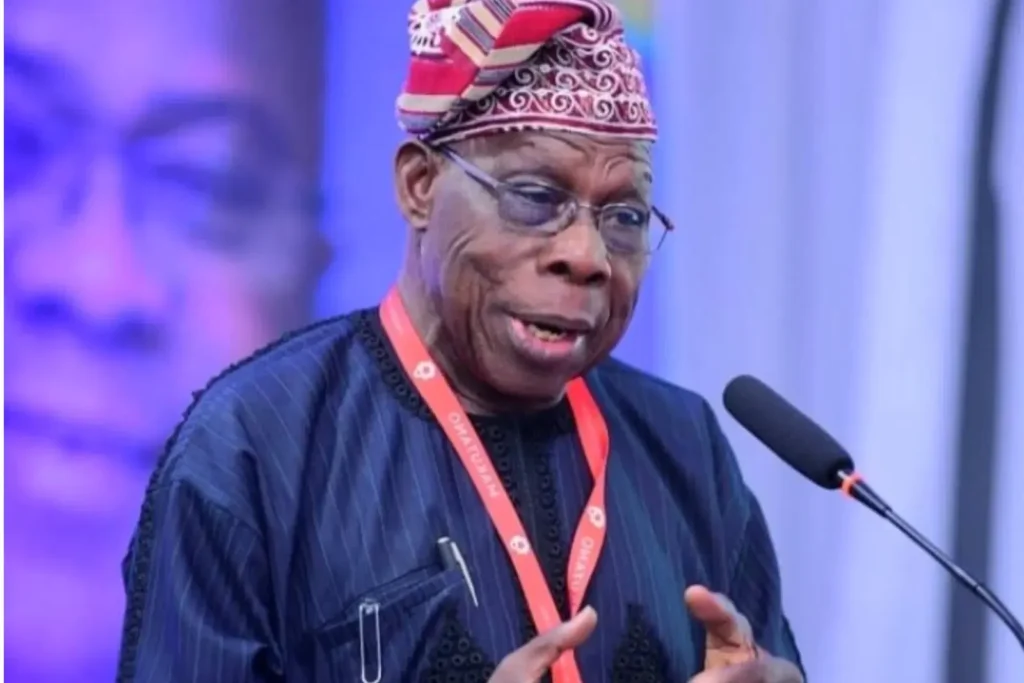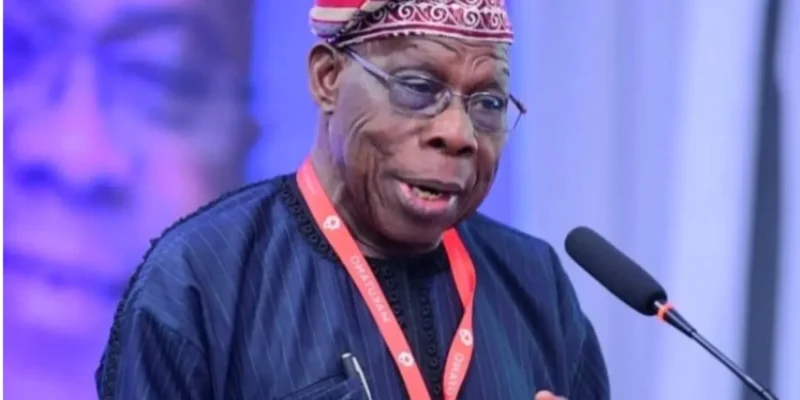
— Ex-President Speaks at Nigerian Army War College Symposium in Abuja
Former President Olusegun Obasanjo has said that disinformation played a critical and dangerous role during the Nigerian Civil War (1967–1970), warning that similar tactics are still being used by insurgents and violent groups across the country today.
Speaking at the Sixth Edition of the Annual Nigerian Civil War Symposium organised by the Army War College Nigeria (AWCN) on Wednesday in Abuja, Obasanjo commended the theme of the event — “The Role of Disinformation in the Nigerian Civil War” — as highly relevant, especially amid the rise of asymmetric warfare in Nigeria and beyond.
“Disinformation, propaganda, psychological warfare and the propagation of false narratives are the primary tools weaker forces use to discredit stronger ones in asymmetric warfare,” Obasanjo said. “These tactics fueled tensions and shaped public opinion during the civil war — and they are still being deployed by insurgents in the northeast and other regions today.”
The former president stressed the urgent need to prioritize the study of history — particularly military history — as a national strategy to extract and apply hard-learned lessons from past conflicts. Quoting a popular proverb, he said: “A child that does not learn history will be told history.”
Obasanjo praised AWCN for incorporating the Nigerian Civil War into its curriculum, noting that it would sharpen the capacity of operational-level leaders to apply historical insights to present-day planning and security operations.
“This fratricidal conflict left an indelible mark on our nation’s memory,” he said. “Its complex causes and consequences offer invaluable lessons that still shape our national identity today.”
Representing the Chief of Army Staff, Lt.-Gen. Olufemi Oluyede, Maj.-Gen. P.E. Eromosele described the symposium as a vital platform for enhancing strategic thinking within the Nigerian Army. He reaffirmed the military’s commitment to building a professional, combat-ready force anchored on sound leadership and informed operational strategy.
In his opening remarks, AWCN Commandant Maj.-Gen. Umar Alkali said the symposium was designed to sharpen the intellectual and leadership capabilities of participants in Course 9/2025. He noted that the theme ties directly into the Chief of Army Staff’s command philosophy to create a force capable of delivering on its constitutional duties within a joint environment.
“This symposium allows us to dissect past military campaigns at strategic, operational, and tactical levels,” Alkali said. “By understanding how disinformation shaped the Nigerian Civil War, we become better equipped to dominate the information space in modern warfare.”
Guest lecturer and Vice Chancellor of Admiralty University, Prof. Christopher Ogbogbo, delivered a comprehensive analysis of how propaganda, media manipulation, and false narratives influenced both the direction of the war and public perception. He argued that information warfare remains one of the most potent tools in both internal and international conflicts.
The symposium brought together senior military officials, academics, and security experts to examine the historical and contemporary relevance of disinformation in warfare — a subject many now regard as central to Nigeria’s ongoing battle for national security and unity.

Comments